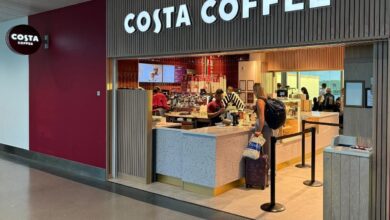Can all restaurants profit from introducing vegan meals?

Register to get 1 free article
Reveal the article below by registering for our email newsletter.
Want unlimited access? View Plans
Already have an account? Sign in
Many establishments renowned for their non-vegetarian cuisine are cutting down on their meat-based menu as they become more ecologically conscious and look for ways to reduce carbon emissions.
Wahaca became one of the first major restaurant chains to remove steak from its menu as part of its sustainability initiative earlier this year. The Mexican restaurant recently put out a statement that it will no longer serve red meat in hopes that the restaurant can reduce its carbon footprint.
Thomasina Miers, owner of Wahaca told The Telegraph that the restaurant was looking at a way of reducing the amount of meat dishes, and since “meat and dairy products are among the biggest culprits from an emissions perspective”, it decided to expand its vegetarian and vegan offerings.
Fast food chain Leon was also among the first to introduce a vegan menu back in 2018. Big chains like Burger King, McDonald’s, Taco Bell, KFC have also started offering plant-based dishes incorporating meatless “meat” products from companies like Impossible Foods, Beyond Meat, Quorn.
So while restaurants and fast food chains are cutting down on meat as part of environmental campaigns, could pivoting to a primarily vegetarian or vegan offering maintain a healthy cash flow for your business?
According to a Forbes survey, out of 22 restaurants surveyed that made the switch to 100% vegan menus, the 17 that responded reported increased sales—and some saw sales surge by as much as 1,000%. The eateries also reported an increase in social media followers—some as much as 15,000%. Many also saw a decrease in food costs.
Michelin-starred chef Alexis Gauthier who used to sell 20kg of foie gras a week converted his London-based restaurant, Gauthier Soho, entirely vegan in 2021. While Gauthier admits that the restaurant has “lost a lot of customers, sadly”, since becoming vegan, despite that he has gained even more new diners, all looking for something different and sustainable and prepared to pay the price.
M&S’s Plant Kitchen range also sold 4.8 million items in three months after its ‘Veganuary’ launch. Meanwhile, London-based vegan start-up The Vurger Co nearly doubled its initial crowdfunding target when it raised £300,000 in just three days in 2017, enabling the brand to open its first restaurant.
Even Leon reported that vegan burgers were outselling regular burgers as meat alternative products made up almost 60% of total sales across Leon’s 75+ restaurants in the UK, with vegan burger sales surging from 41.3% to 56.8% in 2020.
Leon’s head of food stated that while vegan and veggie dishes were always on its menu, “it was starting to see the market catch up now”.
One explanation may be the increasing numbers of consumers converting to meat-alternative options. According to The Vegan Society, the number of vegans in Great Britain quadrupled between 2014 and 2019 to over 600,000.
Additionally, according to Sainsbury’s Future of Food Report, vegans and vegetarians look set to make up a quarter of the British population in 2025, and flexitarians just under half of all UK consumers.
Griffith stated that one of the reasons restaurants should serve vegan options is price. According to the latest figures, even though inflation fell 8.7% in April, food and non-alcoholic beverage prices continued to rise, contributing to high annual inflation.
Many ingredients that substitute for meat, eggs and dairy products are actually cheaper or priced similarly. Plus, meat prices are expected to continue rising. Reducing meat purchases and increasing meat-free fare can help save your dining operation a ton of money.
The vegan market is also an emerging one. From 2019 to 2025, the alternative meat market is anticipated to expand by 15% on an annual growth rate (CAGR) basis to reach US$28bn (£21.84bn). This will significantly outpace the 3.4% CAGR predicted for the real meat market from 2019 to 2026.
However, converting to a meatless menu can provide some challenges. The Mango Tree, located in Taunton, Somerset, which started out as a vegan restaurant, has failed to rally enough plant-based customers to their restaurant and has consequently decided to rebrand its eatery entirely.
As a result, the restaurant owners decided to turn their plant-based eatery into one serving meat. They are adamant that employment and maintenance expenses are just as significant as vegan principles. One of the representatives also acknowledged that “hospitality is getting harder and running a 100% vegan restaurant hasn’t been viable for a long time because there aren’t enough people supporting us in our current format.”
More recently, Meatless Farms, a plant-based meat manufacturer and supplier to food industry services and restaurants, also had to make the majority of its employees redundant as they claimed the demand for vegan food is “slowing down”.
So, even while chains are increasingly adapting their offering to reduce their carbon footprint and cater to the seemingly growing vegetarian and vegan market, it is difficult to predict whether going vegan will be advantageous in terms of expenses, sales, and consumer satisfaction for every hospitality company but it is one that should be considered.







